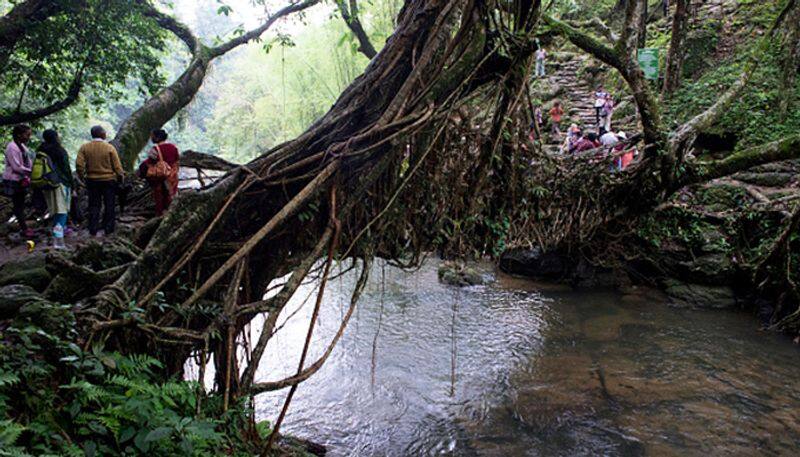A village in the state of Meghalaya, Mawlynnong, has made a name for itself in keeping its environment clean. The village was also praised by PM Narendra Modi in his radio address. Hill stations in the south can learn a lot in this regard.
Bengaluru: Mawlynnong is a village 80 kilometres from Shillong, Meghalaya.
This village has made a name for itself for cleanliness.
Prime Minister Narendra Modi started the Swachh Bharat campaign in 2014, but much before this, this village in the northeast had functional public toilets, solar-powered streetlights, and a ban on smoking and using plastic.
Impressive, isn’t it? The village has bamboo dustbins place all around. As many as 500 locals manufacture these dustbins. “For us, cleanliness is a habit. We choose to speak through our actions rather than words. We never correct tourists, but pick up their discarded plastic (food packets or bottles) and throw them into the dustbins, hoping they’ll learn by observing us,” says Ahaba Khongthiem, a worker in a restaurant, as quoted by the Hindu.
The PM was so impressed with the cleanliness in the village that he even spoke about it in his monthly radio address.
But the problem of plastic is far from over. To tackle it, under the guidance of chief minister Conrad Sangma the locals are working towards a ban on tourists carrying plastic wrappers and food packets. Not just this, they also have plans to set up a checking counter and water filters.
“In the next three months, we are considering to put a ban in place. This is aimed at decreasing the amount of solid waste generated,” says village head, Banjopthiaw Kharrymba.
But how has the village become so successful in maintaining cleanliness?
It all boils down to inculcating the habit in kids even before they start going to school.
As per practice, these kids are made to go around the village with sacks and are asked to pick up garbage. They are then made to segregate waste into different categories.
Indeed, the village of Mawlynnong stands as a glowing example of how you can keep your environment clean. Hill stations in the south, like Ooty and Coorg can borrow some tips from this village and walk in the same direction.
Last Updated Sep 21, 2019, 11:31 AM IST











![Salman Khan sets stage on fire for Anant Ambani, Radhika Merchant pre-wedding festivities [WATCH] ATG](https://static-ai.asianetnews.com/images/01hr1hh8y86gvb4kbqgnyhc0w0/whatsapp-image-2024-03-03-at-12-24-37-pm_100x60xt.jpg)
![Pregnant Deepika Padukone dances with Ranveer Singh at Anant Ambani, Radhika Merchant pre-wedding bash [WATCH] ATG](https://static-ai.asianetnews.com/images/01hr1ffyd3nzqzgm6ba0k87vr8/whatsapp-image-2024-03-03-at-11-45-35-am_100x60xt.jpg)



